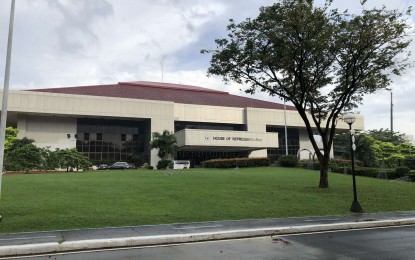
MANILA – Albay Rep. Joel Salceda, House ways and means committee chairman, on Monday said he is working with the Department of Trade and Industry (DTI) to craft the Strategic Investment Priorities Plan (SIPP), which is a list of priority industries that will qualify for incentives under the Corporate Recovery and Tax Incentives for Enterprises (CREATE) Act.
Salceda, the principal author of the CREATE law, said the SIPP would determine the qualification and the length of incentives an enterprise will receive.
“The SIPP will basically be the promo brochure our investment promotion agencies use to invite investors into the country. This is urgent work. We have to create new jobs now,” Salceda said. “I am in touch with the DTI and the BOI (Board of Investments). I’ll help complete the list as soon as possible, hopefully within the month.”
Salceda said he would want resiliency-building innovations in the list, particularly for innovations in food and agricultural manufacturing, financial technology, sanitation, healthcare, and education.
“Like many great historical events, Covid-19 has made many industries redundant. The key to national development is not to resurrect dead industries but to create new ones. The root word of innovation is ‘new.’ We need new life in our economy, so we need new industries,” Salceda said.
He said the SIPP could also be used for pandemic-proofing to prepare the country’s economy for shocks similar to Covid-19.
“This will not be the last pandemic. As we destroy more habitats and human settlement meets wildlife more, we will see more diseases. It will take time to reverse the ecological damage we tolerated. So, we have to prepare for the consequences in the meantime,” Salceda said.
He noted that the provision that the President can grant special incentives to big investments is already in effect.
“I urge investors who are looking to invest USD1 billion in the country to already talk to the applicable investment promotion agency,” Salceda added. “I urge the BOI to complete the list as soon as possible. Completing the SIPP is like the storefront sign that says ‘we are open for business.’”
RA 11534 cuts the corporate income tax rate to 25 percent from the current 30 percent. This is retroactive from July 1, 2020.
“Provided, that corporations with net taxable income not exceeding PHP5 million and with total assets not exceeding PHP100 million, excluding land on which the particular business entity’s office, plan, and equipment are situated during the taxable year for which the tax is imposed, shall be taxed at 20 percent,” according to the law.
In the case of corporations adopting the fiscal-year accounting period, the taxable income shall be computed without regard to the specific date when specific sales, purchases, and other transactions occur, the law read.
Under RA 11534, corporations’ income and expenses for the fiscal year shall be deemed to have been earned and spent equally for each month of the period.
“The corporate income tax rate shall be applied on the amount computed by multiplying the number of months covered by the new rate within the fiscal year by the taxable income of the corporation for the period, divided by the twelve,” the law said.
A minimum corporate income tax of 2 percent of the gross income as of the end of the taxable year is imposed on the entitled taxable corporation beginning on the fourth taxable year immediately following the year in which such corporation commenced its business operations.
Foreign corporations, based on the CREATE Act, will be subject to an income tax equivalent to 25 percent of the taxable income derived in the preceding taxable year from all their sources within the Philippines. (PNA)
